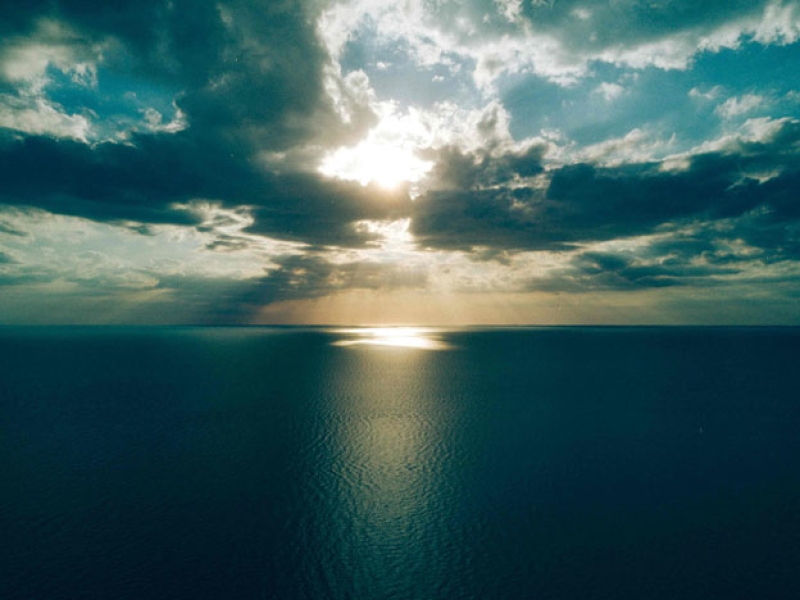- India Sees 9% Drop in Foreign Tourists as Bangladesh Visits Plunge |
- Dhaka Urges Restraint in Pakistan-Afghan War |
- Guterres Urges Action on Safe Migration Pact |
- OpenAI Raises $110B in Amazon-Led Funding |
- Puppet show enchants Children as Boi Mela comes alive on day 2 |
EU’s Ocean Leadership Faces Test as Treaty Clock Ticks

Photo collected
It is entirely possible, if one so wished, to spend a lifetime moving from one international environmental conference to the next without ever seeing meaningful progress. While the pace of these meetings is relentless, the action they yield is often frustratingly slow — diluted commitments and extended timelines have become the norm. Public patience is wearing thin. People want more than promises — they want action to address the climate and biodiversity crises before it's too late.
In this leadership vacuum, the European Union has a unique opportunity to step up — particularly in protecting our planet’s most vital shared resource: the ocean.
The ocean is Earth’s life support system. Covering over 70% of the planet, it regulates our climate, absorbs carbon dioxide, generates over half the oxygen we breathe, sustains livelihoods, feeds billions, and harbours untapped scientific potential. Yet, it remains under siege — from pollution, overfishing, habitat destruction, and the worsening impacts of climate change.
Worryingly, vast stretches of the ocean, especially the High Seas, are still dangerously underprotected.
That’s why it was both remarkable and encouraging that, for the first time, all 27 EU Heads of State and Government adopted ambitious conclusions on ocean protection at the March 2025 European Council. Chief among them was a commitment to promptly ratify the High Seas Treaty — formally known as the Biodiversity Beyond National Jurisdiction (BBNJ) Agreement — finalised in 2023 after nearly two decades of negotiations.
This treaty is a landmark for multilateralism and marine conservation. It offers a framework to safeguard biodiversity across the two-thirds of the ocean that lie beyond national borders. But treaties don’t protect ecosystems — countries do. Unless 60 nations ratify it, the treaty’s promise remains unrealised.
The EU has the power — and the responsibility — to lead. With its 27 member states, it could significantly accelerate the treaty’s entry into force. While the EU as a bloc ratified the treaty in June 2024, only France and Spain have completed national ratification. Others remain stalled. Recently, the European Commission proposed a Directive to help align national laws with the BBNJ Agreement — a step in the right direction, but urgency must now follow.
Member states must fast-track their ratification processes to send a decisive signal of global leadership. A recent policy brief by Europe Jacques Delors lays out how the EU can leverage its legal, institutional, and diplomatic tools to do just that.
The stakes are high. Nearly 40% of EU citizens live in coastal areas, which generate a similar share of the EU’s GDP. The EU also oversees the largest Exclusive Economic Zone in the world, thanks to its overseas territories. From economic security and energy resilience to food supply and climate stability, Europe’s future is deeply linked to the health of its seas.
Leadership is not about declarations — it’s about delivery.
In June, the 3rd UN Ocean Conference (UNOC3) will be held in Nice — a crucial moment for rallying the 60 ratifications needed to activate the treaty. Securing this goal is critical to maintain the EU’s credibility on ocean governance and meet global targets like the 30×30 biodiversity goal: protecting 30% of the ocean by 2030.
The EU must double down on its 'blue diplomacy'. It should mobilise the High Ambition Coalition for the High Seas Treaty — an initiative it helped launch — to drive forward ratification and implementation among its 52 members. UNOC3 must show that environmental multilateralism can still succeed when it truly matters.
The imminent launch of the European Ocean Pact, building on work by Europe Jacques Delors and the Oceano Azul Foundation, and recent Council conclusions, all signal intent. But intent must now become action.
In a shifting geopolitical landscape, the EU must act as both a stabilising force and a champion of ocean protection. Ratifying the High Seas Treaty, preparing for its implementation, and shaping a robust governance framework will be a litmus test of EU leadership — and of its vision for the planet’s future.
The world is watching. The ocean is waiting. And time is running out.

